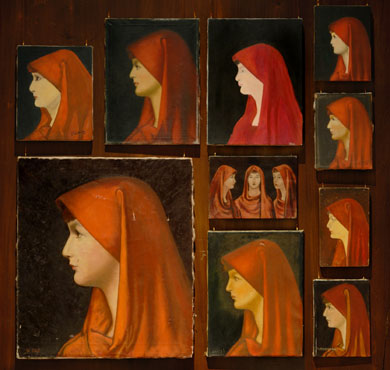Listeners to Hooting Yard On The Air will be aware of my boundless admiration for the pulp writer Hal K Wells. Many’s the time I have read out on the show one particular quotation from his story Black Pool For Hell Maidens, to wit:
Â
Carlin’s deep-shadowed eyes were flaming pools of mad menace.
“I could shoot you both down where you stand,” he rasped, “but that would be a foolish waste of valuable material… I shall turn the two of you over to the Dweller in the pool!”
 Dorothy Lane cried aloud in terror. Carlin’s thin lips writhed in a snarling smile…
“Who, or what, is the Dweller in the pool?” demanded Kent, “And what devil’s work is Carlin doing here anyway?”
“The Dweller in the pool,” Dorothy answered, her low voice trembling, “is my brother, Raoul!” …
Small wonder that the throbbing agony of so many tortured minds should combine to taint the very air with a shuddering miasma of crepitant dread!
That “My brother, Raoul!” gets me every time.
I am pleased to report, via Odd Ends, that another Wells story has been added at Project Gutenberg. In Devil Crystals Of Arret, young Larry faces a six-hour deadline of death, plus rat-men, octopus-bats, eldritch music and tinkling devil crystals! So alluring is the prospect of wallowing in a Wellsian miasma, I have had to put on hold my plan to read the umpteen volumes of John Ruskin’s Fors Clavigera : Letters To The Workmen And Labourers Of Great Britain, a work Guy Davenport suggested is comparable only to Tristram Shandy in its magnificent eccentricity.
The Sun newspaper – yes, The Sun! – once commanded its readers “Go thee to H P Lovecraft and shudder!” Excellent advice, you’ll agree, and I would like to echo it by recommending you do the same with Hal K Wells. A few more of his tales are available online here.
Â




